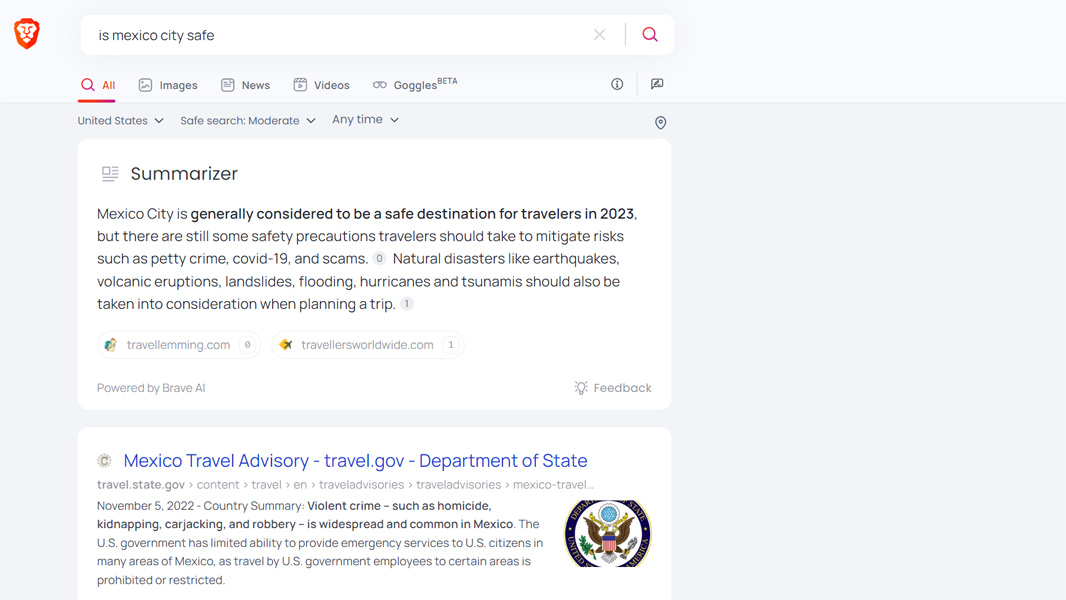Brave Search Adds AI-Powered Summarizer
- Paul Thurrott
- Mar 02, 2023
-
0

Brave today announced that it has added an AI-powered Summarizer feature to its Brave Search service that uses search results to provide concise answers to queries.
“The Summarizer provides concise and to-the-point answers at the top of Brave Search results pages, in response to the user’s input, solely based on Web search results,” the announcement notes. “Unlike a purely generative AI model, which is prone to spout unsubstantiated assertions, we trained our large language models (LLMs) to process multiple sources of information present on the Web. This produces a more concise, accurate answer, expressed in coherent language.”
Windows Intelligence In Your Inbox
Sign up for our new free newsletter to get three time-saving tips each Friday — and get free copies of Paul Thurrott's Windows 11 and Windows 10 Field Guides (normally $9.99) as a special welcome gift!
"*" indicates required fields
Take that, Bing chatbot.
The Summarizer is available immediately in Brave Search on desktop and mobile and its answer appears above the normal list of search results by default, though those who don’t want to use it can turn it off. It correctly attributes where it found the information it is communicating, and it provides real-time information that can help you keep up-to-date on current events.
That said, Brave does warn users that any AI-based tool can be unreliable and can deliver “hallucinations,” and that it’s important to think critically when using such things. One assumes the average Brave user is a bit more likely to do so than the typical Bing user, but whatever: the state of AI today is iffy at best.
Brave also draws a distinction between the Summarizer and tools like the Bing chatbot, which relies on third parties and has scalability issues. By comparison, the Brave Summarizer relies only on Brave-owned models, and it can process up to 600 queries per second against its AI model. Today, Brave Search generates summaries for about 17 percent of queries, but the firm expects that number to grow quickly. It is not based on ChatGPT but is instead composed of three different LLMs that are trained on different tasks.
“At Brave, we are not yet convinced that LLMs can replace search as we know it,” the announcement continues. “However, if used properly, these new models can help the user navigate results, which is the approach we follow with the Summarizer. Chat-like interfaces and oracle-based search remain unproven and, as of today, we remain skeptical that they’ll be useful for all search tasks.”